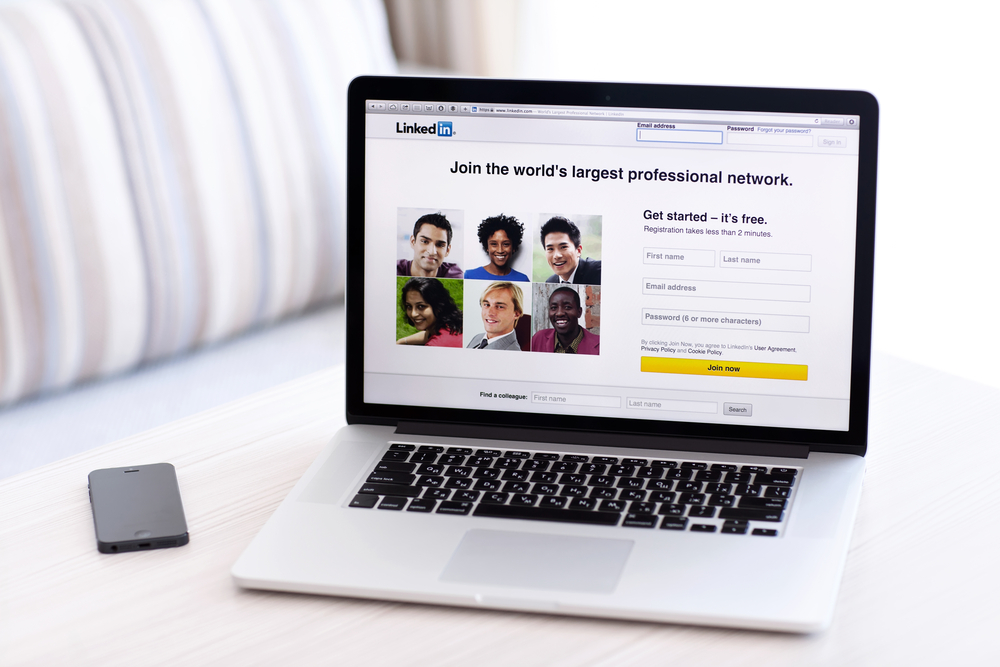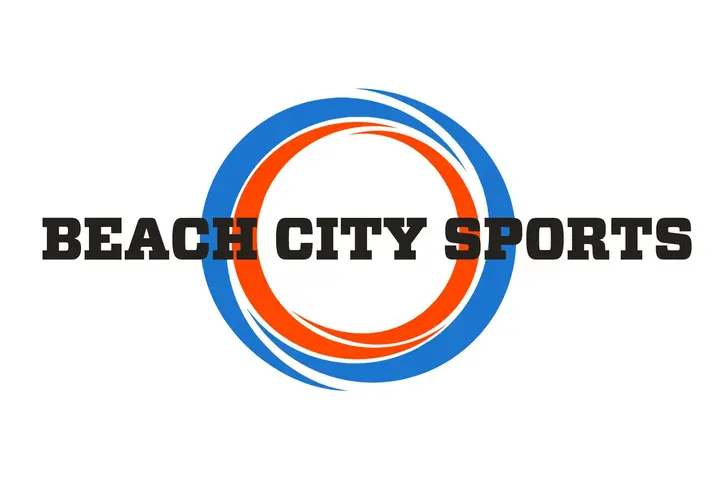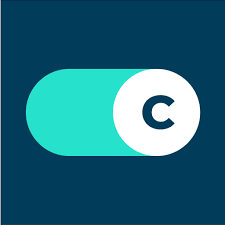Meta, formerly known as Facebook, is a global technology company that focuses on building technologies that help people connect, find communities, and grow businesses. Founded in 2004 by Mark Zuckerberg, the company has grown into one of the world’s most influential tech giants. Meta’s family of apps and services includes:
- Facebook: The flagship social networking platform
- Instagram: Photo and video-sharing social network
- WhatsApp: Encrypted messaging service
- Messenger: Instant messaging app integrated with Facebook
- Oculus: Virtual reality technology and hardware
Meta is also investing heavily in augmented and virtual reality technologies, aiming to build the “metaverse,” a collective virtual shared space.
Read: How to Get a Remote Job at Automattic: A Simple Guide
Meta’s Impact on the Tech Industry
Meta has had a profound impact on the tech industry and society at large:

- Social Media Revolution: Facebook pioneered the modern social media landscape.
- Digital Advertising: Meta’s platforms have transformed online advertising.
- Internet Accessibility: Initiatives like Internet.org aim to increase global internet access.
- Technology Innovation: Advancements in AI, VR, and AR have pushed industry boundaries.
- Open Source Contributions: Meta has shared many of its technologies with the developer community.
Company Mission and Values
Meta’s mission is “to give people the power to build community and bring the world closer together.” This mission drives the company’s product development and business strategies.
Key values that guide Meta include:
- Move Fast: Emphasis on quick innovation and learning from mistakes.
- Be Bold: Encouraging risk-taking and thinking big.
- Focus on Impact: Prioritizing work that makes a significant difference.
- Be Open: Promoting transparency and information sharing.
- Build Social Value: Creating technology that benefits society.
Remote Work at Meta
Meta has embraced remote work, especially after the COVID-19 pandemic. The company offers a flexible approach to work locations:
- Remote Work: Many roles are available as fully remote positions.
- Office-Based: Some roles require regular presence in a Meta office.
- Hybrid: Combination of remote and in-office work.
Meta supports remote workers with technology, stipends for home office setups, and virtual team-building activities.
Types of Remote Roles Available
Meta offers a wide range of remote opportunities across various departments:
- Engineering: Software engineers, data scientists, security specialists
- Product Management: Product managers, product designers, UX researchers
- Marketing: Digital marketers, content strategists, brand managers
- Sales and Partnerships: Account managers, business development representatives
- Operations: Data analysts, project managers, operations specialists
- Research: AI researchers, social scientists, market researchers
CLICK HERE TO SEARCH AND APPLY FOR ANY OF THE JOBS ABOVE ON META
Benefits of Working Remotely for Meta
Working remotely for Meta comes with several advantages:
- Flexibility: Choose your work environment and manage your schedule.
- Global Opportunities: Work with diverse teams across different time zones.
- Work-Life Balance: Reduce commute times and have more time for personal life.
- Access to Top-Tier Projects: Work on impactful projects regardless of your location.
- Competitive Compensation: Meta offers strong salaries and benefits, even for remote roles.
- Professional Development: Access to learning resources and virtual training programs.
- Cutting-Edge Tools: Utilize state-of-the-art technology for remote collaboration.
Read: Land Your Dream Remote Job at Dropbox: Insider Tips for 2024 Success
Understanding Meta’s Work Culture
Several key aspects characterize meta’s work culture:

- Innovation-driven: Constant push for new ideas and technologies.
- Move Fast, Break Things: Emphasis on rapid iteration and learning from failures.
- Openness and Transparency: Regular company-wide Q&A sessions with leadership.
- Hackathons: Regular events to spark creativity and new product ideas.
- Flat Organization: Accessibility to leadership and minimal hierarchy.
- Data-Informed Decision Making: Heavy reliance on analytics and testing.
- Diverse and Inclusive: Commitment to building a diverse workforce and inclusive products.
How Meta Maintains Its Culture in a Remote Setting
To maintain its unique culture in a remote work environment, Meta employs several strategies:
- Virtual Town Halls: Regular company-wide meetings to share updates and answer questions.
- Online Collaboration Tools: Utilization of advanced tools for seamless remote teamwork.
- Virtual Social Events: Organizing online team-building activities and social gatherings.
- Remote Hackathons: Continuing the tradition of innovation events in a virtual format.
- Emphasis on Written Communication: Encouraging clear, concise written updates and documentation.
- Remote Onboarding: Comprehensive virtual onboarding process for new hires.
- Mental Health Support: Providing resources and support for remote employees’ well-being.
Importance of Adaptability and Innovation
At Meta, adaptability and innovation are crucial:
- Rapidly Changing Industry: The tech landscape evolves quickly, requiring constant adaptation.
- User-Centric Approach: Continuously innovating to meet changing user needs and preferences.
- Competitive Market: Staying ahead in a highly competitive industry through constant innovation.
- Technological Advancements: Embracing and driving new technologies like AR, VR, and AI.
- Global Challenges: Adapting to worldwide events and challenges that affect the business.
- Cross-functional collaboration: Ability to work across teams and adapt to different working styles.
- Continuous Learning: Emphasis on personal growth and skill development to keep up with industry trends.
Understanding and embracing these cultural aspects is key to succeeding in a remote role at Meta. The company values individuals who can thrive in a fast-paced, innovative environment while working independently and collaboratively in a remote setting.
Key Skills and Qualifications
The technical skills required will vary depending on the specific role you’re applying for. However, some commonly sought-after technical skills at Meta include:
- Software Engineering: Proficiency in languages like Python, C++, Java, JavaScript, and PHP
- Data Science: Expertise in machine learning, AI, statistical analysis, and big data technologies
- Product Management: Experience with agile methodologies, product lifecycle management, and data-driven decision making
- UX/UI Design: Proficiency in design tools like Figma, Sketch, and Adobe Creative Suite
- Network Engineering: Knowledge of network protocols, security, and infrastructure management
- AR/VR Development: Experience with Unity, Unreal Engine, and 3D modelling
Soft Skills Valued by Meta
Meta places a high value on soft skills that contribute to a collaborative and innovative work environment:
- Communication: Clear and effective written and verbal communication
- Problem-solving: Ability to approach complex issues creatively and analytically
- Adaptability: Flexibility in the face of changing priorities or technologies
- Collaboration: Skill in working with diverse, cross-functional teams
- Leadership: Ability to guide projects and influence without direct authority
- Empathy: Understanding user needs and relating to team members
- Growth Mindset: Enthusiasm for learning and personal development
Experience with Social Media Platforms and Digital Technologies
Familiarity with social media and digital landscapes is crucial:
- Understanding of major social media platforms and their unique features
- Knowledge of digital marketing strategies and analytics
- Awareness of current trends in social media and digital communication
- Experience with content creation and management tools
- Understanding of mobile technologies and app ecosystems
Understanding of Privacy and Data Protection
Given Meta’s focus on user data, knowledge in this area is important:
- Familiarity with data protection regulations (e.g., GDPR, CCPA)
- Understanding of best practices in data privacy and security
- Awareness of ethical considerations in data handling and use
- Knowledge of encryption technologies and secure communication protocols
Read: 5 Ways to Avoid Remote Work Pitfalls
Preparing Your Application
- Visit Meta’s official careers website: https://www.metacareers.com/
- Use filters to search for remote positions in your area of expertise
- Read job descriptions thoroughly to understand the requirements and responsibilities
- Research the specific team or product you’re interested in joining
Tailoring Your Resume and Cover Letter
- Highlight relevant skills and experiences that align with Meta’s needs
- Use keywords from the job description in your resume
- Showcase projects or achievements that demonstrate your impact
- In your cover letter, explain why you’re passionate about Meta’s mission and the specific role
Building a Portfolio
- Compile relevant projects, especially those demonstrating skills crucial for the role
- For technical roles, include code samples or links to GitHub repositories
- For design roles, showcase your best UX/UI work
- Include any relevant publications, presentations, or open-source contributions
Leveraging Your LinkedIn Profile and Professional Network

- Ensure your LinkedIn profile is up-to-date and aligns with your resume
- Connect with current Meta employees to gain insights about the company
- Engage with Meta’s content on LinkedIn and other professional platforms
- Consider reaching out to recruiters or employees for referrals
The Application Process
- Create an account on Meta’s career portal
- Set up job alerts for positions that interest you
- Save interesting job postings to apply later if you’re not ready immediately
Tips for Submitting a Strong Application
- Tailor your application to each specific role
- Provide concrete examples of your achievements and their impact
- Be concise but comprehensive in your descriptions
- Proofread all materials carefully before submitting
Understanding the Stages of Meta’s Hiring Process
- Initial Application Review: Your application is screened by recruiters
- Initial Interview: Usually, a phone or video call with a recruiter
- Technical or Skills Assessment: Role-specific evaluation of your abilities
- On-site Interviews (virtual for remote roles): Multiple rounds with team members and leadership
- Reference Checks: Verification of your work history and performance
- Offer Stage: If successful, you’ll receive a job offer
Read: Secrets to Maintaining Work-Life Boundaries in a Remote Job
Interview Preparation
- Initial Screening: Basic questions about your background and interest in Meta
- Technical Interviews: Coding challenges, system design questions, or role-specific technical assessments
- Behavioural Interviews: Questions about your past experiences and how you handle various situations
- Product Sense Interviews: For product-related roles, assessing your product thinking and strategy
- Leadership and Culture Fit: Evaluating your alignment with Meta’s values and leadership principles
Common Interview Questions at Meta
- “Tell me about a time when you had to deal with a challenging team dynamic.”
- “How would you improve one of Meta’s products?”
- “Describe a situation where you had to decide with incomplete information.”
- “How do you stay updated with the latest trends in technology?”
- “What’s the most innovative project you’ve worked on, and what was your role?”
Showcasing Your Skills and Experiences Effectively
- Use the STAR method (Situation, Task, Action, Result) to structure your responses
- Provide specific, quantifiable examples of your achievements
- Demonstrate your problem-solving process and analytical thinking
- Show how your past experiences relate to the challenges Meta faces
Tips for Succeeding in Virtual Interviews
- Test your technology (camera, microphone, internet connection) beforehand
- Choose a quiet, well-lit space for the interview
- Maintain eye contact by looking at the camera, not the screen
- Use visual cues (nodding, smiling) to show engagement
- Have a pen and paper ready to take notes
- Prepare examples of your work that you can screen share if needed
Remember, Meta values authenticity and innovation. Don’t be afraid to let your personality shine through during the interview process, and be prepared to discuss how you can contribute to Meta’s mission of connecting the world.
Demonstrating Your Remote Work Capabilities
- Emphasize any prior remote work experience in your resume and cover letter
- Describe specific challenges you’ve overcome while working remotely
- Highlight remote work accomplishments and how they benefited your previous employers
- If you lack formal remote work experience, focus on relevant transferable skills from other settings
Showcasing Your Self-Motivation and Time Management Skills
- Provide examples of self-directed projects you’ve successfully completed
- Describe your personal system for managing tasks and deadlines
- Highlight instances where you’ve balanced multiple priorities effectively
- Discuss how you maintain productivity and focus in a home office environment
Emphasizing Your Proficiency with Remote Collaboration Tools
- List relevant tools you’re familiar with (e.g., Slack, Zoom, Asana, Google Workspace)
- Describe how you’ve used these tools to facilitate effective remote communication and collaboration
- Mention any remote team-building activities you’ve participated in or led
- Highlight your adaptability in learning new collaboration tools quickly
Understanding Meta’s Products and Services
- Facebook
- Understand the core features of the platform
- Familiarize yourself with Facebook’s business tools and advertising capabilities
- Know about Facebook Groups, Pages, and Events
- Instagram
- Understand the visual nature of the platform and its features like Stories and Reels
- Know about Instagram Shopping and its integration with e-commerce
- WhatsApp
- Understand its encryption features and global popularity
- Know about WhatsApp Business and its potential for customer service
- Messenger
- Understand its integration with Facebook and standalone capabilities
- Know about Messenger bots and their business applications
- Oculus
- Understand Meta’s virtual reality offerings
- Know about Oculus Quest and its applications beyond gaming
Staying Updated on Meta’s Latest Initiatives
- Metaverse
- Understand Meta’s vision for the metaverse
- Stay informed about Meta’s investments and developments in this area
- Artificial Intelligence and Machine Learning
- Know about Meta’s AI research and its applications across their platforms
- Internet Connectivity Initiatives
- Understand projects like Internet.org and their global impact
- Crypto and Blockchain
- Stay informed about Meta’s efforts in digital currency (e.g., the Diem project)
- Augmented Reality
- Know about Meta’s AR projects and their potential applications
Demonstrating Your Passion for Meta’s Mission and Products
- Use Meta’s products regularly to gain firsthand experience
- Follow Meta’s official blog, newsroom, and social media accounts for updates
- Participate in relevant online communities or forums discussing Meta’s technologies
- Consider contributing to open-source projects related to Meta’s technologies
- In your application and interviews, discuss specific features or initiatives that excite you
Post-Interview Follow-up
- Send a personalized thank-you email within 24 hours of your interview
- Express gratitude for the interviewer’s time and the opportunity to learn more about Meta
- Reiterate your enthusiasm for the position and how your skills align with the role
- Reference specific points from the interview to show you were engaged and attentive
- Keep the email concise, professional, and free of errors
Example:
Subject: Thank you for the [Position] interview
Dear [Interviewer’s Name],
Thank you for speaking with me yesterday about the [Position] role at Meta. I enjoyed learning more about [specific project or responsibility discussed] and how the team works toward [goal or objective mentioned].
Our conversation reinforced my enthusiasm for the position and belief that my skills in [relevant skill] and experience with [relevant experience] would enable me to contribute effectively to your team.
I’m excited about the possibility of bringing my passion for [relevant area] to Meta and helping to achieve [company goal or mission].
Thank you again for your time and consideration. I look forward to hearing about the next steps in the process.
Best regards,
[Your Name]
Following Up on Your Application Status
- Ask about the next steps and timeline at the end of your interview
- If you haven’t heard back by the specified time, wait an additional 2-3 business days before following up
- Send a polite email to your main point of contact (usually the recruiter) inquiring about the status of your application
- Reiterate your interest in the position and offer to provide any additional information if needed
- If you don’t receive a response, you may follow up once more after about a week
Example:
Subject: Following up on [Position] application
Dear [Recruiter’s Name],
I hope this email finds you well. I wanted to follow up on my application for the [Position] role at Meta. I had the pleasure of interviewing with [Interviewer’s Name] on [Date], and they mentioned that I could expect to hear back about the next steps by [Expected Date].
I’m still very excited about the opportunity to join the Meta team and contribute to [specific project or goal discussed]. Could you provide me with an update on the status of my application or if there’s any additional information I can provide to support my candidacy?
Thank you for your time and consideration. I look forward to hearing from you.
Best regards,
[Your Name]
Maintaining Professional Communication Throughout the Process
- Respond promptly to all communications from Meta recruiters or team members.
- Keep your tone professional and courteous in all interactions
- If you receive other job offers while waiting, inform the Meta recruiter about your timeline
- If you decide to withdraw your application, notify the recruiter promptly and politely
- Regardless of the outcome, express gratitude for the opportunity and maintain a positive relationship
Remember, the post-interview period is your last opportunity to make a positive impression before a hiring decision. A well-crafted follow-up can reinforce your candidacy and demonstrate your professionalism and genuine interest in joining Meta.

